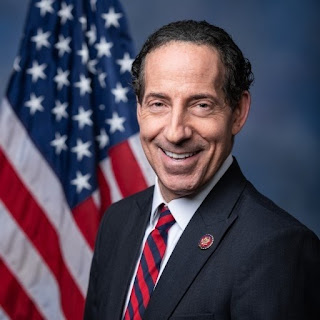It has often and rightly been said that the Constitution is not a suicide pact. And yet, some substantial numbers of Republicans in the House of Representatives seem willing to throw the country, and in fact, the world, into economic chaos by refusing to raise the debt ceiling without demanding spending cuts for which they do not have the votes to enact through regular legislative order. Their position has properly been called blackmail.
It is ironic that the World War I era debt ceiling was enacted to facilitate government borrowing, not to preclude it. Congress grew tired of the executive’s repeatedly returning for authorization to borrow money in a time of war. In recent times, however, the debt ceiling has become a weapon for the minority party to get its way. Well, to try, anyway.
This country is increasingly governed by Republicans, even though they represent a minority of citizens. This is the result of gerrymandering and accidents of history combined with singleminded strategizing to pack the judicial branch with radical, barely qualified, right-wing judges. It is time to remove the debt ceiling as yet another anti-democratic weapon from the GOP arsenal.
Although President Biden has repeatedly said that he would not negotiate spending cuts in order to increase the debt ceiling, negotiations nevertheless appear to be ongoing. But the president should stick to his guns. It is fine to negotiate with the blackmailers about spending, but a clean debt ceiling increase must be a separate, nonnegotiable issue. And if Republican legislators want to talk about controlling the federal debt, the administration should not even be speaking to them unless they are willing to consider tax hikes. Republicans don’t actually care about the nation’s debt; they want instead to cripple or destroy the welfare and administrative state.
Various procedures have been suggested to avoid the country’s going over the fiscal cliff if Congress cannot agree on a debt ceiling increase. The idea of minting a trillion-dollar coin is one of the more intriguing schemes that has been proposed, but the idea suffers from simply being weird.
Then there is the matter of the Fourteenth Amendment. Section 4 of the amendment reads
The validity of the public debt of the United States, authorized by law, including debts incurred for payment of pensions and bounties for services in suppressing insurrection or rebellion, shall not be questioned. But neither the United States nor any State shall assume or pay any debt or obligation incurred in aid of insurrection or rebellion against the United States, or any claim for the loss or emancipation of any slave; but all such debts, obligations and claims shall be held illegal and void.
This amendment was passed after the Civil War to assure that the Union’s war debt would be paid. Its provisions are general, however, and they are helpful in maintaining the rock-solid integrity of federal obligations. Allowing the government to default on its debt is surely unconstitutional. If Congress has authorized spending and that spending has taken place, the government must stand behind any debt obligations incurred to finance that spending. The government, by analogy to individuals, must pay its credit card bills. (Paul Klugman recently pointed out, however, that this analogy can be taken only so far.)
No doubt, President Biden is reluctant to cite the Fourteenth Amendment to continue paying government obligations in the absence of a legislative debt ceiling increase. Republicans would view such a move as a kluge, as somehow illegitimate, though not as bizarre as the trillion-dollar coin trick. It would likely attract a lawsuit to block or undo the president’s action. This might even cause a delay that, in the end, did in fact, result in default. That is a chance that must be taken.
If the Republican House does not pass a clean debt ceiling increase lasting at least two years, Mr. Biden should let things stand until the government is on the brink of default. He should then announce that the government will continue paying bills, as the Fourteenth Amendment requires it, and he has sworn to uphold the Constitution.
It is interesting to consider who could file such a lawsuit in response to such an administrative action. Who would have standing? Would standing require a plaintiff harmed by the government’s not defaulting on its debt? These are crazy times, and if doctors whose sensitivities could be assaulted by having to treat a patient who had a bad reaction to a medicinal abortion can file a lawsuit to reverse an FDA drug approval, who knows who could get through the courthouse door opposing the plain meaning of the Fourteenth Amendment? Likely, the House or House members would file, arguing that the authority had been usurped. Let them do so.
Any such suit would quickly reach the nation’s highest court. But even today’s conservative Supreme Court recognizes that the Constitution is not a suicide pact. The government should not only argue that the Fourteenth Amendment means that the government must pay its bills but also that the very idea of a debt ceiling is unconstitutional. The administration and the court will have an opportunity to kill the dysfunctional debt ceiling once and for all.
They should, by all means, do so.
























